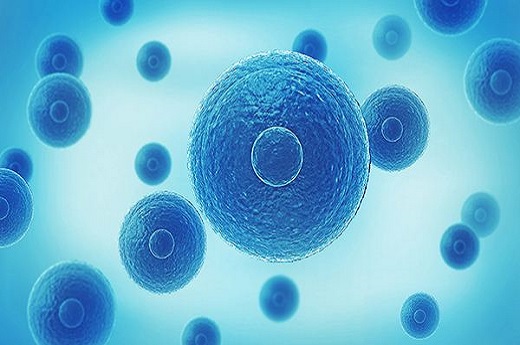Understanding the Success Rate of IVF
In this article, we will delve into the success rate of in vitro fertilization (IVF) and explore the various factors that can impact the outcome. The success rate of IVF is a topic of great interest for couples seeking fertility treatment, and it is important to have a comprehensive understanding of the contributing factors. We will discuss the success rate of IVF from six different perspectives, including age, fertility issues, lifestyle factors, the quality of the fertility clinic, pre-implantation genetic testing, and emotional support. By examining these factors, we hope to provide a comprehensive overview of the success rate of IVF and offer insights for those considering this fertility treatment.
理解试管婴儿成功率

我们将深入探讨体外受精(IVF)的成功率,并探讨各种可能影响结果的因素。IVF的成功率是备受关注的话题,对于寻求生育治疗的夫妇来说,全面了解影响因素至关重要。我们将从六个不同的角度讨论IVF的成功率,包括年龄、生育问题、生活方式因素、生育诊所的质量、胚胎植入前基因测试以及情感支持。通过研究这些因素,我们希望全面了解IVF的成功率,并为考虑这种生育治疗的人提供见解。
The Impact of Age
Age is a crucial factor that significantly impacts the success rate of IVF. For women, the quality and quantity of eggs decline with age, leading to reduced fertility. Research has shown that women under 35 have a higher chance of successful IVF compared to older women. Additionally, advanced maternal age is associated with an increased risk of miscarriage and chromosomal abnormalities in embryos.
年龄的影响

年龄是影响IVF成功率的关键因素。对于女性来说,随着年龄的增长,卵子的质量和数量会下降,导致生育能力减弱。研究表明,35岁以下的女性与年龄较大的女性相比,成功进行IVF的几率更高。高龄孕妇与流产和胚胎染色体异常的风险增加相关联。
Fertility Issues
Underlying fertility issues can also impact the success rate of IVF. Conditions such as endometriosis, polycystic ovary syndrome (PCOS), and diminished ovarian reserve can affect the chances of successful fertilization and embryo implantation. It is essential for individuals with known fertility issues to work closely with their healthcare providers to address these challenges and optimize their chances of a successful IVF outcome.
生育问题

潜在的生育问题也会影响IVF的成功率。子宫内膜异位症、多囊卵巢综合征(PCOS)和卵巢储备减少等疾病会影响成功受精和胚胎植入的几率。已知有生育问题的人需要与他们的医疗服务提供者密切合作,以解决这些挑战,并最大限度地提高IVF成功的机会。
Lifestyle Factors
Lifestyle factors such as smoking, excessive alcohol consumption, and obesity can have a negative impact on the success rate of IVF. These factors can affect egg and sperm quality, hormone levels, and overall reproductive health. Making positive lifestyle changes, such as maintaining a healthy weight, exercising regularly, and avoiding harmful substances, can improve the chances of a successful IVF outcome.
生活方式因素
吸烟、过量饮酒和肥胖等生活方式因素会对IVF的成功率产生负面影响。这些因素会影响卵子和的质量、激素水平和整体生殖健康。积极改变生活方式,如保持健康体重、定期锻炼和避免有害物质,可以提高IVF成功的几率。
The Quality of the Fertility Clinic
The quality of the fertility clinic and the expertise of the medical team play a significant role in the success rate of IVF. It is important to choose a reputable clinic with experienced professionals who can provide personalized care and support throughout the IVF process. The clinic's success rates, laboratory standards, and patient satisfaction should be carefully considered when selecting a fertility clinic for IVF treatment.
生育诊所的质量
生育诊所的质量和医疗团队的专业水平在IVF的成功率中起着重要作用。选择一家声誉良好、拥有经验丰富的专业人士,能够在整个IVF过程中提供个性化护理和支持的诊所非常重要。在选择IVF治疗的生育诊所时,应仔细考虑诊所的成功率、实验室标准和患者满意度。
Pre-implantation Genetic Testing
Pre-implantation genetic testing (PGT) can significantly impact the success rate of IVF by identifying chromosomal abnormalities and genetic conditions in embryos before implantation. This testing can help select the healthiest embryos for transfer, improving the chances of a successful pregnancy. Couples with a history of genetic disorders or recurrent pregnancy loss may benefit from PGT to increase the likelihood of a successful IVF outcome.
胚胎植入前基因测试
胚胎植入前基因测试(PGT)可以通过在植入前检测胚胎的染色体异常和遗传疾病,显著影响IVF的成功率。这种测试可以帮助选择最健康的胚胎进行移植,提高成功妊娠的几率。有遗传疾病史或反复流产史的夫妇可能会从PGT中受益,以增加IVF成功的可能性。
Emotional Support
The emotional well-being of individuals undergoing IVF treatment can impact the overall success rate. The stress and emotional toll of fertility treatment can affect hormonal balance and reproductive health. Access to counseling, support groups, and other forms of emotional support can help individuals navigate the challenges of IVF and improve their chances of a successful outcome.
情感支持
接受IVF治疗的个人的情感健康状况可能会影响整体的成功率。生育治疗的压力和情感负担会影响激素平衡和生殖健康。获得咨询、支持小组和其他形式的情感支持可以帮助个人应对IVF的挑战,并提高成功的几率。
Conclusion
In conclusion, the success rate of IVF is influenced by a multitude of factors, including age, fertility issues, lifestyle factors, the quality of the fertility clinic, pre-implantation genetic testing, and emotional support. By understanding and addressing these factors, individuals and couples can optimize their chances of a successful IVF outcome. It is important to work closely with healthcare providers, make positive lifestyle changes, and seek emotional support throughout the IVF process. With comprehensive care and attention to these contributing factors, the success rate of IVF can be maximized, offering hope to those pursuing fertility treatment.
IVF的成功率受多种因素的影响,包括年龄、生育问题、生活方式因素、生育诊所的质量、胚胎植入前基因测试和情感支持。通过理解和解决这些因素,个人和夫妇可以最大程度地提高IVF成功的几率。与医疗服务提供者密切合作、积极改变生活方式,并在整个IVF过程中寻求情感支持非常重要。通过全面的关怀和对这些影响因素的关注,IVF的成功率可以得到最大化,为寻求生育治疗的人们带来希望。





